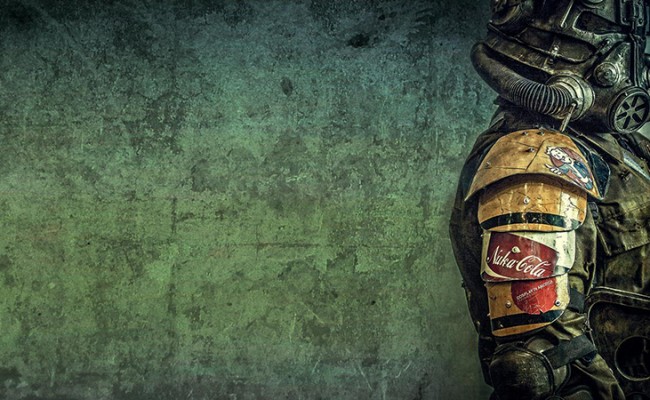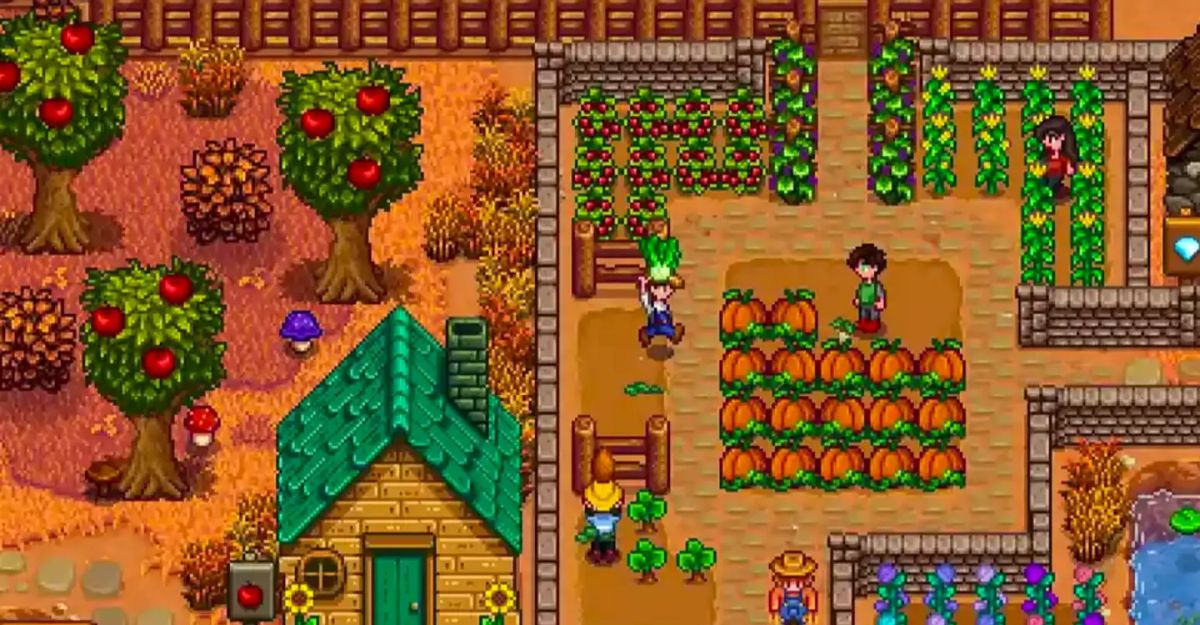The aesthetic of the ‘pre-bomb’ Fallout series by Bethesda Game Studios is arguably of the same era as Allen Ginsberg’s 1956 poem ‘A Supermarket in California’. In it, through imagery of the ‘neon fruit supermarket’, ‘automobiles’ and the river Lethe, Ginsberg ponders the wealth of post-war America. He is uncomfortable by the opulence of consumerism. This American dream feels isolating and superficial.
Fallout 4 starts in a world that would be familiar to Ginsberg. There are winged, powder-blue cars in driveways, white picket fences and a tiny rocket mobile over your child’s bed. Unlike the world in which Ginsberg lived through, however, Fallout 4 forces you to flee your house and head towards the Vault 111 bunker. Here you are kept frozen for two hundred years, but not before you witness an atom bomb drop.
The aesthetic of the 50s was chosen for the ‘pre-bomb’ era in Fallout because it is an easy visual touchstone of wealth, safety and prosperity. As such, it strikes a startling comparison to the scarcity of the wasteland.
The ‘post-bomb’ world of Fallout is incredibly bleak. Vast wastelands are populated by mutated creatures and ramshackle settlements. Encounters with other characters often revolves around this scarcity: bartering over bullets; fighting with would-be looters; or doing dangerous work for income. The main narrative drive in the first two games are directly related to securing resources for your people.
You are never allowed to forget the ‘pre-bomb’ world, as the wastelands are filled with small reminders: weathered billboards still showing pictures of happy families drinking Nuka Cola, radio stations playing music of the same era, abandoned office buildings scattered with finance statements, clipboards, folders and burned books. You can’t move for stepping on or knocking over these items, and it is haunting to see figments that are so integral to the running of countries, economies and even daily lives reduced to complete junk in the wake of disaster. The game is built directly on the bones of cities. Fallout 3 was uncanny in its post-apocalyptic depiction of Washington DC, and Fallout 4’s depiction of Boston is no less so.
There is a sort of joy to be had, stumbling across relics like logging into terminals that hold the stories of those who lived so long ago. Their petty complaints and office politics seem absurd so out of context. It is like viewing a reflection of yourself and your own life – a strange kind of hindsight.
Many of Ginsberg’s neon fruit supermarkets feature, though here they are shells of their former selves. Gutted of most things of value, often all that can be found are stray cans of food with names that seem peppy, overly happy in such a wasteland: Instamash; Pork N’ Beans; Fancy Lad’s Snack Cakes. The packages have preserved them, but not spared them the effects of radiation. Eating them poisons you.
Prior to 4, any critique of consumerism was background noise, humming away but never bringing itself to the fore. Fallout 4 brings it front and centre. ‘In the twenty-first century,’ the prelude explains, ‘people awoke from the American dream. Years of consumption led to shortages of every major resource. The entire world unravelled.’ Given the very real climate crisis faced across the world, this premise is all too believable.
This is then furthered by the fact that one of the main functions in Fallout 4 is the ability to build settlements. In order to do this, you are required to scrap items for their base components such as glass, steel, aluminium, crystal and wood, inviting the player to engage with the concepts around value, longevity and utility.
Ginsberg suggests that America has moved on too quickly from its brutal past: the death of thousands of service men; the atrocities that America committed in Japan. There is the suggestion, too, that America is hastily trying to build a dream to escape these realities. The Fallout series shares this anxiety. ‘War. War never changes’ is echoed through each instalment. I give the creators enough credit to say that this mantra isn’t just an effort towards world-building but is, instead, a political statement – something to bring discomfort into the player’s comparatively cushy life.
While attending the PAX gaming convention in Melbourne early in November, I shared with Ginsberg a similar feeling of unease – the gaming business represents to me one of the biggest icons of prosperity and opulence of our time. Only the most privileged can afford to spend upwards of thousands on televisions, consoles or computers with good specs and graphics cards. The Melbourne Convention Centre was decked out in an abundance of giant screens projecting videos from a wide array of big-budget computer games, the gameplay of which overwhelmingly hinged on the premise of war or combat. The Bethesda booth was a massive reconstruction of a vault, with volunteers dressed in boiler suits donning replica hardware and weaponry from the game.
At one point, wandering through the complex, I was confronted by the sound of several hundred people roaring. Later, I found out that it was the result of a give-away of various items such as computers, speakers, monitors. It brought home for me just how tokenistic these games are – war in these games is glamourised and glorified, even in the grittiest of them, which offer complex, challenging, ethical situations, such as those in Fallout.
Fallout 4 itself is nevertheless so intricate and beautifully made that the hardware required to run it’s extensive graphics is prohibitive in its price. This sort of gaming means that there are many who would not be able to play it, even if they could afford the game itself, because they don’t have the expendable income to invest in the computers or consoles required. It feels like the most depressing irony that Bethesda are using the prospect of scarcity, war and counter-capitalist rhetoric to sell a game that is, if anything, a peak motivator for one of the major capitalist gluts of our time.



